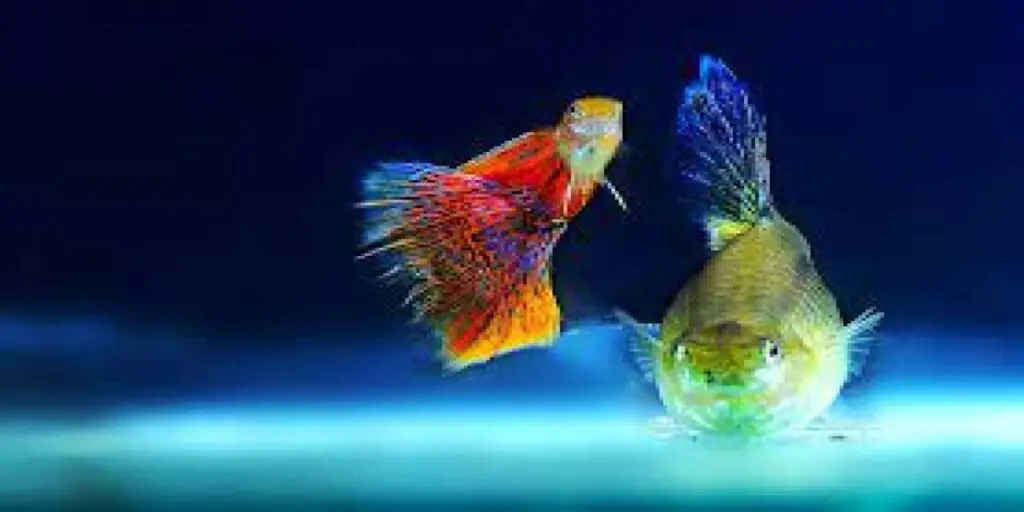
Guppies, known for their vibrant colors and active nature, are popular freshwater aquarium fish. Although they are generally considered to be peaceful community fish, there are also instances where guppies exhibit predatory behavior, which begs the question: do guppies eat each other? In this article, we will explore the factors that contribute to guppy cannibalism and how to prevent it in an aquarium setting.
Racial tendencies in guppies
Guppy cannibalism is primarily caused by a combination of factors, including overcrowding, competition for resources, stress, and insufficient food. When guppies are faced with a limited food supply or stressful conditions, their natural instincts may lead them to view their tankmates, including their own offspring, as potential sources of sustenance.
Obstetrics and Gynecology
One of the most common forms of cannibalism in guppies is maternal cannibalism, where the mother guppy eats her fry. This behavior is usually triggered by stress, lack of food, or overcrowding.
It may seem counterintuitive for a mother to eat her young, but in some cases, it is an adaptive strategy to conserve energy and increase the chances of survival of the remaining fry.
Masculinity:
Male guppies can also exhibit disobedient tendencies, especially when there is limited space and competition for mates. In situations where multiple males live together, dominant males may resort to attacking and exploiting weaker or smaller males.
This behavior ensures the dominance of strong males and reduces competition for available resources and females.
Prevention of cannibalism:
To prevent cannibalism among guppies, several steps can be taken:
Providing Adequate Space: Ensuring adequate space for guppies reduces stress levels and reduces competition for resources, reducing the likelihood of cannibalistic behavior.
Balanced Diet: Providing a well-balanced and varied diet is essential to meet the nutritional needs of guppies. A diet rich in high-quality flakes, pellets, and occasional live or frozen food will help satisfy their appetite and reduce the likelihood of predation.
Separation of fry: Separation of newborn fry from adult guppies can prevent maternal predation. Keeping fry in a separate rearing or nursery tank with adequate hiding places and adequate food ensures their safety and survival.
Managing Population Density: Overcrowding must be avoided. Maintaining an appropriate male-to-female ratio and providing adequate hiding places and areas within the aquarium helps reduce aggression and predation tendencies.
Reducing stress: Creating a calm and stress-free environment is beneficial. Proper filtration, proper water parameters, and regular maintenance routines contribute to a healthy tank, reducing stress levels and reducing the potential for predation.
Can I keep only 2 guppies together?
Keeping only two guppies together is generally not recommended. Guppies are social fish and thrive in groups.
Keeping only two guppies can cause stress and potential aggression problems. It is best to maintain a small group of guppies, ideally with a ratio of 1:2 or 1:3 to prevent male aggression.
Why are my guppies killing each other
Guppies can show aggressive behavior towards each other due to various factors. The most common reasons guppies kill each other include overcrowding, competition for resources, breeding aggression, and territorial disputes.
Inadequate space, inadequate hiding places, or an unbalanced male-to-female ratio can increase aggression. Providing a suitable environment and managing population density is essential to reduce aggression and prevent deadly conflicts.
How can I stop my guppies from eating their babies
To prevent guppies from eating their own fry (baby guppies), you can follow a few strategies:
Isolate the fry
Use a separate rearing or nursery tank to house the newborn fry. This allows them to grow safely without being targeted by adult guppies. Provide enough hiding places, such as plants or netting, to provide protection.
Provide dense vegetation
Adding live plants or artificial decorations along with dense vegetation creates hiding places for fry. This reduces the chances of them being spotted and eaten by adult guppies.
Optimum Nutrition
Ensuring that adult guppies are well-fed with a balanced diet reduces their tendency to overeat. Providing a variety of high-quality flakes, pellets, and occasionally live or frozen food will meet their nutritional needs.
Can 1 guppy live with other fish?
Yes, guppies are generally compatible with many other peaceful fish. They can be kept with species such as tetras, platies, swordfish, mollies, and other small community fish.
However, to ensure a harmonious coexistence it is important to consider the specific needs of the fish species, including water parameters, tank size, and compatibility. Aggressive or fin-piercing fish should be avoided, as they can damage the guppy’s delicate fins.
Remember to research the specific needs of the fish species you plan to keep together and keep a close eye on their interactions to ensure the well-being and compatibility of all inhabitants in the aquarium.
You May Also Like:
Conclusion
Although guppies are generally peaceful fish, cannibalism can occur under certain conditions. Understanding the factors that contribute to predation behavior in guppies and implementing preventive measures such as providing adequate housing, balanced diets, and proper population management can help reduce predation in aquarium settings. can By ensuring a harmonious and stress-free environment for guppies, aquarists can enjoy the beauty of these colorful fish without caring for them.